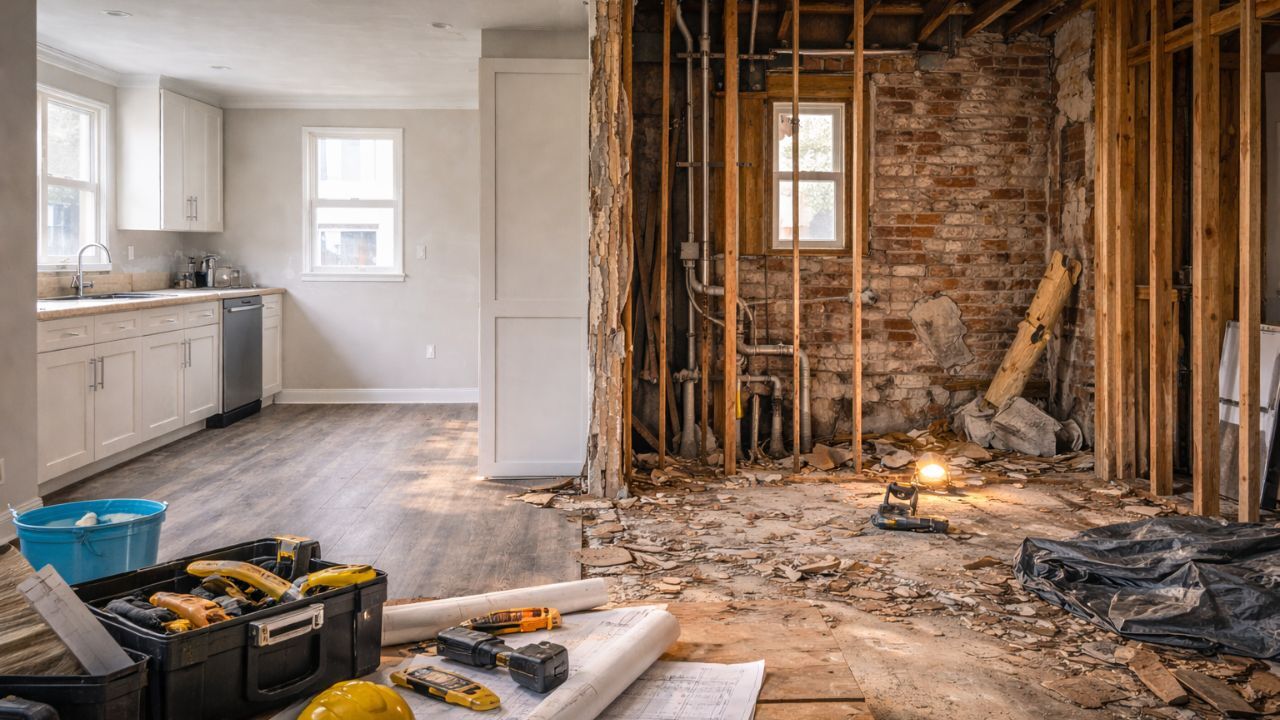 Buyers often prioritize finishes, layout, and visual appeal. While design matters, daily well-being matters more. Sleep quality influences health, mood, productivity, and long-term financial decision making. A home that disrupts rest can create stress that affects work performance, spending habits, and overall stability. Mortgage professionals should encourage buyers to evaluate how a property supports sustainable living, not just how it photographs during a showing.
Buyers often prioritize finishes, layout, and visual appeal. While design matters, daily well-being matters more. Sleep quality influences health, mood, productivity, and long-term financial decision making. A home that disrupts rest can create stress that affects work performance, spending habits, and overall stability. Mortgage professionals should encourage buyers to evaluate how a property supports sustainable living, not just how it photographs during a showing.
Noise and Light Affect Rest
Traffic flow, nearby activity, and window placement directly influence sleep quality. Bedrooms facing busy streets or high activity areas may seem manageable during a daytime tour but feel very different at night. Inadequate window coverings or poorly placed exterior lighting can interrupt natural sleep cycles. Buyers who ignore these factors may later feel dissatisfaction that has nothing to do with their mortgage payment, yet everything to do with their daily experience.
Layout Impacts Financial Sustainability
Sleep disruption affects productivity, and productivity supports income stability. When buyers choose a home that encourages consistent rest, they protect their earning potential and overall financial resilience. A separate sleeping space, clear boundaries between work and rest areas, and thoughtful room placement support long-term success. Homes that blur these lines can create subtle stress that compounds over time.
Commute and Routine Shape Energy
Distance from work and daily obligations also affect sleep patterns. Longer commutes reduce rest and increase fatigue. Fatigue can lead to reduced focus and higher stress levels, which influence financial decision making. A slightly higher purchase price closer to work may create better long-term stability than a lower price with daily exhaustion. Mortgage planning should always consider lifestyle sustainability alongside affordability.
A property is more than a visual investment. It is a daily environment that supports health, income stability, and long-term financial comfort. Choosing a home that protects rest ultimately protects your ability to manage your mortgage successfully. Looking to become a homeowner or explore your mortgage options? Reach out today to start the conversation.
 Homeownership presents a unique opportunity to teach children about financial responsibility. A home is more than shelter, it is a visible example of budgeting, borrowing, and long-term commitment. When parents involve children in age-appropriate conversations about mortgage payments, equity, and planning, they model financial discipline that lasts well into adulthood.
Homeownership presents a unique opportunity to teach children about financial responsibility. A home is more than shelter, it is a visible example of budgeting, borrowing, and long-term commitment. When parents involve children in age-appropriate conversations about mortgage payments, equity, and planning, they model financial discipline that lasts well into adulthood. Buying a home requires dozens of decisions in a short period of time. Buyers compare properties, analyze numbers, gather documentation, respond to lender requests, negotiate terms, and imagine future scenarios all at once. What many do not anticipate is the mental exhaustion that follows. Decision fatigue can quietly influence choices, causing buyers to rush, oversimplify, or second guess themselves. Recognizing this pattern helps buyers maintain clarity and confidence throughout the mortgage process.
Buying a home requires dozens of decisions in a short period of time. Buyers compare properties, analyze numbers, gather documentation, respond to lender requests, negotiate terms, and imagine future scenarios all at once. What many do not anticipate is the mental exhaustion that follows. Decision fatigue can quietly influence choices, causing buyers to rush, oversimplify, or second guess themselves. Recognizing this pattern helps buyers maintain clarity and confidence throughout the mortgage process.
 Fixer uppers attract buyers looking for value, personalization, and long term upside. The idea of transforming a property into something uniquely yours is compelling. However, not all renovation opportunities are created equal. The real skill in buying a fixer upper is distinguishing between manageable cosmetic upgrades and deeper structural or functional limitations that can quietly erode your budget and timeline.
Fixer uppers attract buyers looking for value, personalization, and long term upside. The idea of transforming a property into something uniquely yours is compelling. However, not all renovation opportunities are created equal. The real skill in buying a fixer upper is distinguishing between manageable cosmetic upgrades and deeper structural or functional limitations that can quietly erode your budget and timeline. Most buyers focus intensely on the house itself. Bedrooms, finishes, layout, and upgrades dominate attention. But long-term satisfaction often has less to do with the house and more to do with the immediate block around it.
Most buyers focus intensely on the house itself. Bedrooms, finishes, layout, and upgrades dominate attention. But long-term satisfaction often has less to do with the house and more to do with the immediate block around it.